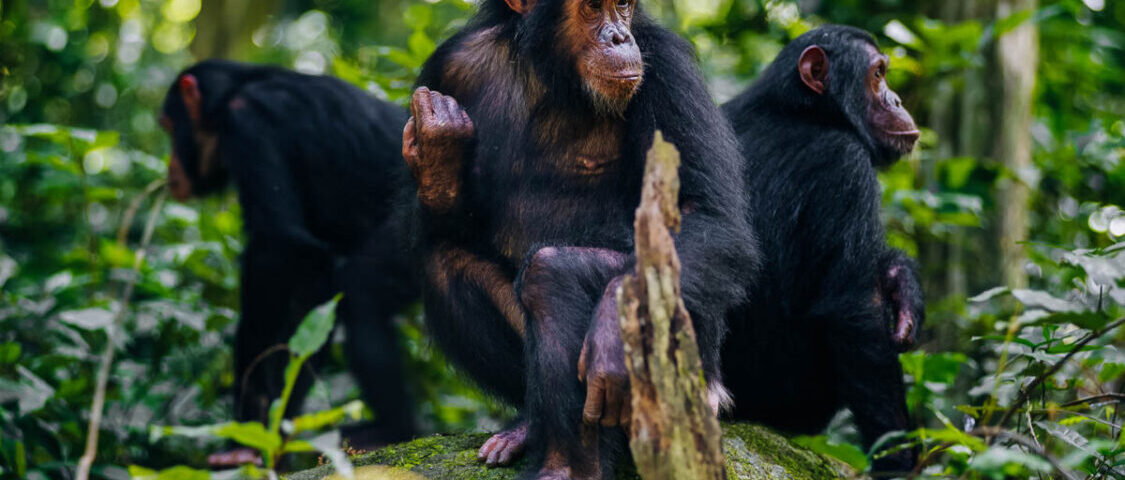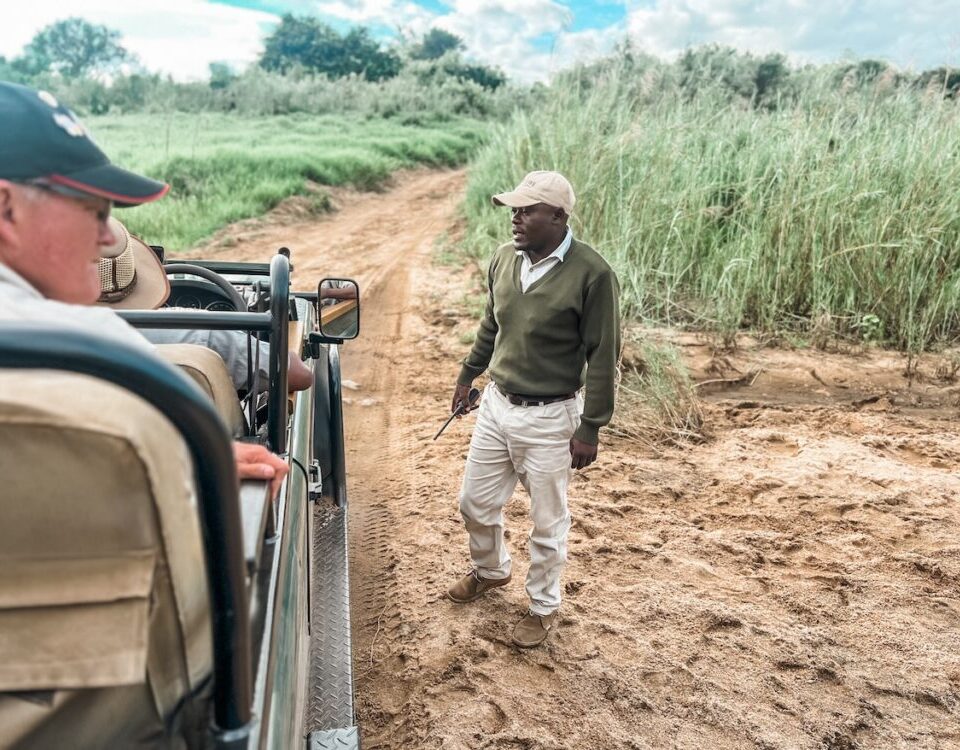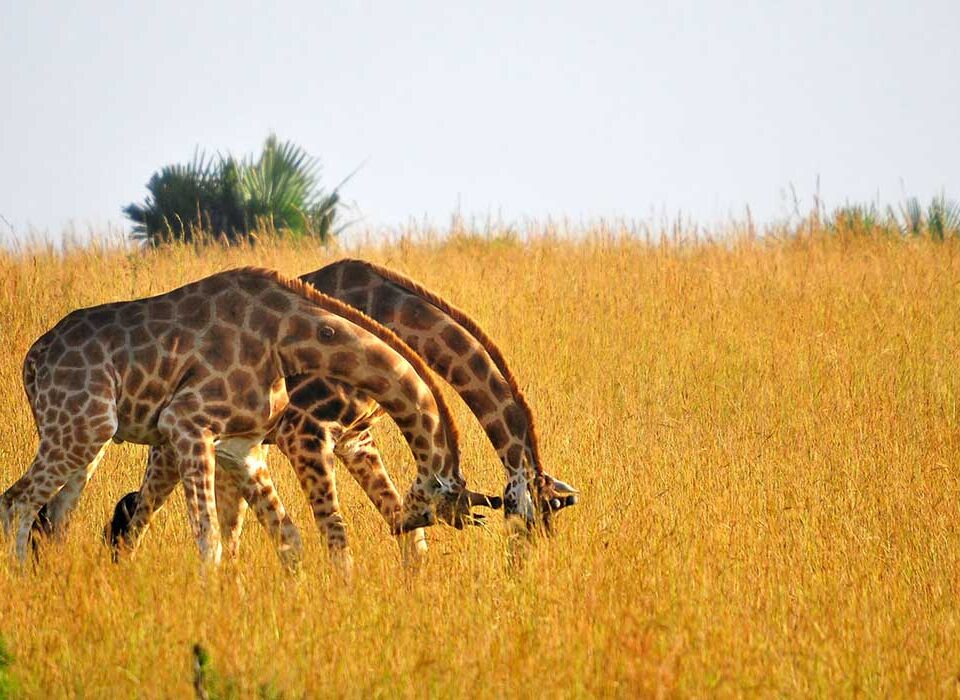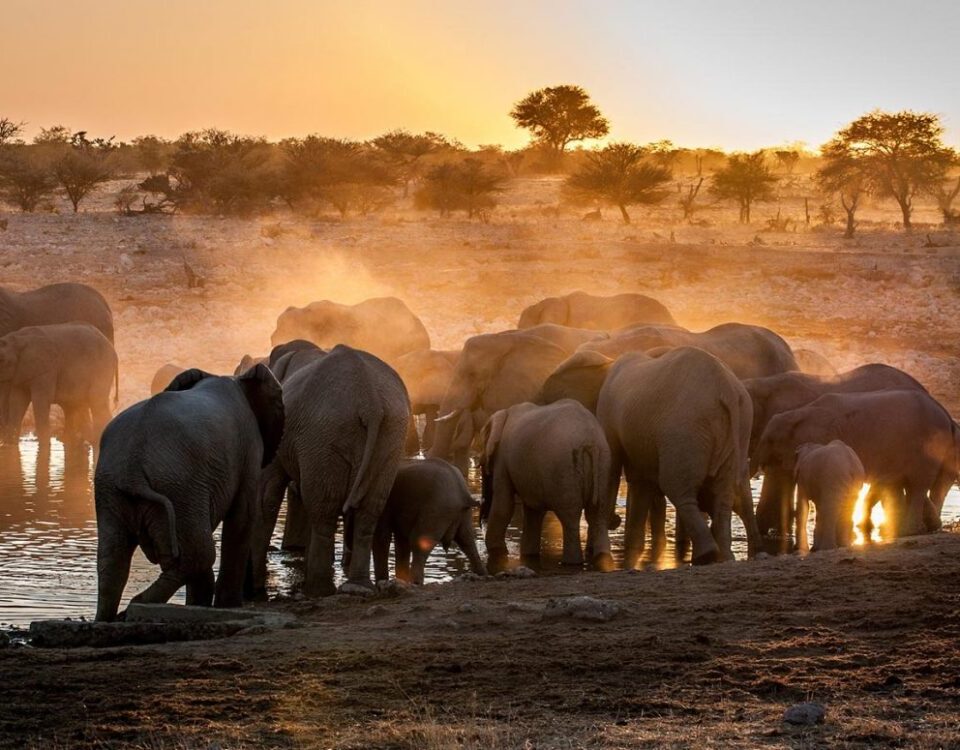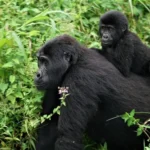
What Is the Best Place to See Gorillas in Africa?
June 30, 2025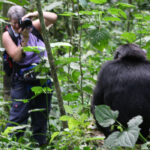
What is Chimpanzee Trekking?
July 1, 2025Is Chimpanzee Trekking Safe?
When planning a wildlife safari in East Africa, especially a Uganda safari or Rwanda safari, one of the most frequently asked questions is: Is chimpanzee trekking safe? Chimpanzee tracking has become a highly sought-after activity for adventure seekers and nature lovers wishing to observe one of our closest primate relatives in their natural habitat. This incredible experience takes place in protected forests such as Uganda’s Kibale Forest National Park and Rwanda’s Nyungwe Forest National Park, both renowned for their rich biodiversity and thriving chimpanzee populations.
At Wild Village Safaris, we emphasize not only the thrill of the adventure but also the crucial safety measures that make chimpanzee trekking a secure and responsible wildlife encounter. Whether you are embarking on chimpanzee tracking or combining it with Gorilla Trekking Rwanda or Uganda Gorilla Trekking, understanding the safety protocols and potential risks involved is essential to ensure an unforgettable and worry-free safari. This article discusses in detail the safety aspects of chimpanzee trekking, how conservation efforts support these experiences, and the cultural opportunities that can enrich your overall East African safari.
The Essence of Safety in Chimpanzee Trekking: What You Need to Know
Controlled and Responsible Wildlife Encounters in Uganda and Rwanda
Chimpanzee trekking is an immersive wildlife safari activity that involves trekking through dense tropical forests to locate and observe wild chimpanzee groups. While the idea of encountering wild animals may raise concerns about safety, both Uganda and Rwanda have developed stringent guidelines to ensure that visitors and chimpanzees remain safe throughout the experience.
Uganda’s Kibale Forest National Park, often called the primate capital of the world, and Rwanda’s Nyungwe Forest National Park are protected reserves where chimpanzees live free but under conservation management. To minimize risks, chimpanzee trekking groups are limited in size—typically no more than eight people per group—allowing guides to monitor visitor behavior closely and maintain a safe distance between humans and animals. These regulations ensure that the wildlife safari remains respectful and non-invasive.
In addition to group size restrictions, trained guides accompany all trekking parties. These experts have deep knowledge of chimpanzee behavior and forest navigation, which helps avoid potentially risky situations. Safety briefings before each trek educate visitors on how to behave in the presence of chimpanzees, such as moving quietly, avoiding eye contact, and not touching the animals. Thanks to these measures, chimpanzee tracking within Uganda safari and Rwanda safari frameworks remains one of the safest ways to engage with wildlife in the region.
Health Protocols and Disease Prevention: Protecting Both Primates and Tourists
How Uganda Gorilla Trekking and Chimpanzee Tracking Ensure Safety from Disease Transmission
A vital consideration when asking Is chimpanzee trekking safe? relates to health and disease transmission between humans and chimpanzees. Given the close genetic relationship, diseases like respiratory infections and viruses can pass easily from humans to primates, threatening their fragile populations.
To address this, Uganda Gorilla Trekking and chimpanzee tracking programs in both Uganda and Rwanda enforce strict health screening protocols. Visitors showing signs of illness, including colds or flu, are advised to postpone trekking activities. Masks may also be recommended to reduce the risk of airborne transmission during close proximity encounters. These health measures safeguard chimpanzees while protecting tourists from potential zoonotic diseases.
Furthermore, the duration of chimpanzee viewing is limited to a maximum of one hour per encounter. This brief exposure reduces stress on the primates and lowers health risks. Strict adherence to a safe distance—typically about 7 meters (23 feet)—also minimizes the chance of disease spread.
With these combined health precautions, supported by professional guides trained in both wildlife conservation and emergency health response, chimpanzee trekking becomes a safe and responsible wildlife safari experience within Uganda safari and Rwanda tour itineraries.
Physical Safety Considerations: Navigating Terrain During Chimpanzee Tracking Safaris
The Role of Experienced Guides in Ensuring a Safe Trekking Experience
When exploring the question Is chimpanzee trekking safe? it’s important to recognize that trekking through tropical forests involves physical challenges that can impact visitor safety. The terrains of Kibale Forest and Nyungwe Forest include steep slopes, muddy paths, thick vegetation, and occasionally slippery conditions due to frequent rains.
Wild Village Safaris always recommends preparing for these environmental conditions with suitable hiking boots, long sleeves, and protective gear. However, what truly guarantees physical safety during the trek is the presence of experienced local guides and park rangers. These professionals not only help track chimpanzee groups using their deep knowledge of primate behavior but also navigate the safest routes, avoiding dangerous areas and minimizing physical strain on trekkers.
Guides are equipped with communication devices to coordinate rescue or medical help if necessary, and trekking groups are kept to manageable sizes to allow effective supervision. For travelers with mobility challenges or young children, alternative wildlife viewing options or shorter treks can be arranged.
Thus, despite the natural challenges posed by the environment, chimpanzee tracking within a Uganda safari or Rwanda tour remains a physically safe activity when supported by expert guidance and adequate preparation.
Cultural Experiences: Enriching Your Chimpanzee Tracking Safari in Uganda and Rwanda
Beyond Wildlife: Immersing in Local Traditions and Communities
An important yet sometimes overlooked aspect of chimpanzee trekking safaris is the opportunity to engage with the vibrant cultures surrounding the national parks. Combining chimpanzee tracking with authentic cultural experiences enhances the overall safari, allowing travelers to connect with the human side of the wilderness.
In Uganda, nearby communities to Kibale Forest include the Batwa people, indigenous forest dwellers whose traditional knowledge of the forest ecosystem has been passed down for generations. Visitors can learn about Batwa culture through music, dance, storytelling, and craft workshops, gaining insight into the delicate balance between humans and nature.
Similarly, Rwanda’s cultural tourism scene around Nyungwe Forest offers visits to local villages where guests experience traditional Rwandan coffee ceremonies, dance performances, and handcraft markets. These interactions provide context on how local communities actively participate in conservation efforts such as chimpanzee tracking and Gorilla Trekking Rwanda.
Wild Village Safaris encourages travelers to include these cultural activities as part of their wildlife safari itineraries. Such experiences not only support local livelihoods but also deepen visitors’ appreciation for the landscapes and wildlife they encounter, creating a richer and more responsible safari adventure.
Combining Uganda Gorilla Trekking with Chimpanzee Tracking: The Ultimate Wildlife Safari
Why Pairing Gorilla Trekking and Chimpanzee Tracking Elevates Your East African Safari
For those planning an extraordinary wildlife safari, combining Uganda Gorilla Trekking with chimpanzee tracking creates an unparalleled East African adventure. Both activities offer unique primate encounters but differ in experience, difficulty, and ecological setting.
Uganda Gorilla Trekking, conducted in Bwindi Impenetrable Forest or Mgahinga Gorilla National Park, involves following endangered mountain gorilla families through dense forests. This experience can be physically demanding but deeply rewarding, offering intimate moments observing gorillas’ social interactions and behaviors.
Chimpanzee tracking, in contrast, is generally less strenuous but no less fascinating. It allows visitors to witness the lively and intelligent behaviors of chimpanzees, often heard long before they are seen, making for an exhilarating forest trek.
When combined, these experiences broaden your wildlife safari by highlighting two of Africa’s most iconic primate species, set within stunning and diverse landscapes. Moreover, combining Gorilla Trekking Rwanda or Uganda Gorilla Trekking with chimpanzee tracking maximizes your safari value and creates a comprehensive wildlife narrative.
At Wild Village Safaris, we specialize in crafting tailored itineraries that merge these unforgettable experiences with cultural immersions and other safari highlights, ensuring safety, comfort, and unparalleled memories.
Conclusion: Answering the Question – Is Chimpanzee Trekking Safe?
In conclusion, Is chimpanzee trekking safe? The answer is a confident yes—provided the trek is undertaken within well-regulated parks such as Uganda’s Kibale Forest or Rwanda’s Nyungwe Forest, accompanied by experienced guides, and following established health and safety protocols. These measures protect both the primates and the trekkers, enabling visitors to safely enjoy one of the most extraordinary wildlife safari experiences available.
By maintaining responsible trekking practices, health screenings, limiting group sizes, and emphasizing respectful encounters, chimpanzee tracking stands as a model of ethical wildlife tourism. When combined with Uganda Gorilla Trekking or Gorilla Trekking Rwanda, it provides a complete East African safari package that caters to wildlife enthusiasts seeking thrilling yet safe adventures.
Wild Village Safaris is committed to ensuring every guest experiences chimpanzee trekking safely while enjoying cultural connections and stunning natural beauty. If you are planning your next Uganda safari or Rwanda tour and want to include a safe, memorable chimpanzee tracking expedition, our expert team is ready to guide you.

